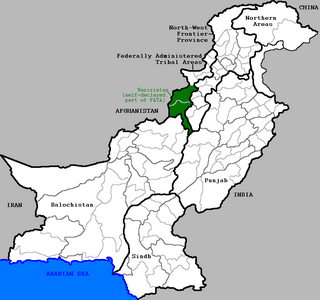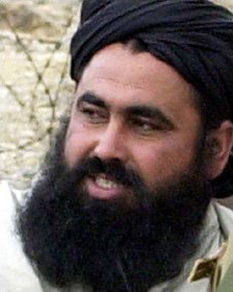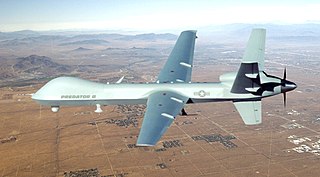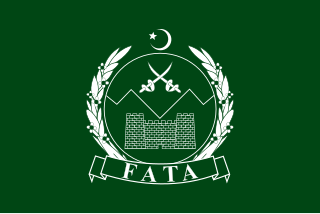Related Research Articles

The Islamic Movement of Uzbekistan was a militant Islamist group formed in 1998 by the Islamic ideologue Tahir Yuldashev, and former Soviet paratrooper Juma Namangani—both ethnic Uzbeks from the Fergana Valley. Its original objective was to overthrow President Islam Karimov of Uzbekistan, and to create an Islamic state under Sharia; however, in subsequent years, it reinvented itself as an ally of Al-Qaeda. The group also maintained relations with Afghan Taliban in 1990s. However, later on, relations between both the Afghan Talibans and Islamic Movement of Uzbekistan started declining. In mid-2015 its leadership publicly pledged allegiance to the Islamic State of Iraq and the Levant (ISIL) and announced that the IMU was part of the group's regional branch. In 2016, it was reported that a new faction of Islamic Movement of Uzbekistan emerged after the group became part of Islamic State (IS). The new faction retained the group's name and was independent of Islamic State (IS). It has also indicated that it is loyal to al-Qaeda and the Taliban and shared their views against the Islamic State (IS).

Waziristan is a mountainous region covering the districts of North Waziristan and South Waziristan of Khyber Pakhtunkhwa province of Pakistan. Waziristan covers some 11,585 square kilometres (4,500 sq mi). The area is populated by ethnic Pashtuns. It is named after the Wazir tribe. The language spoken in the valley is Pashto, predominantly the Waziristani dialect. The region forms the southern part of Pakistan's Federally Administered Tribal Areas, which is now part of Khyber Pakhtunkhwa province.

Nek Muhammad Wazir was a prominent Pakistani mujahideen or jihadi leader. He was killed in a US drone strike in South Waziristan, FATA, Pakistan in 2004. This was the first CIA drone strike inside Pakistan.

Baitullah Mehsud ; c. 1972 – 5 August 2009) was a leading militant in Waziristan, Pakistan, and the leader of the Tehrik-i-Taliban Pakistan (TTP). He formed the TTP from an alliance of about five militant groups in December 2007. He is thought by U.S. military analysts to have commanded up to 5,000 fighters and to have been behind numerous attacks in Pakistan including the assassination of Benazir Bhutto which he and others have denied.

The insurgency in Khyber Pakhtunkhwa, also known as the War in North-West Pakistan, is an armed conflict involving Pakistan, and armed militant groups such as the Tehrik-i-Taliban Pakistan (TTP), Jundallah, Lashkar-e-Islam (LeI), TNSM, al-Qaeda, and their Central Asian allies such as the ISIL–Khorasan (ISIL), Islamic Movement of Uzbekistan, East Turkistan Movement, Emirate of Caucasus, and elements of organized crime.

Qari Hussain Ahmad Mehsud was a top lieutenant in the Tehrik-i-Taliban Pakistan (TTP) and the organizer of the group's suicide bombing squads. He was a cousin of Hakimullah Mehsud.

Tehrik-i-Taliban in Pakistan, alternatively referred to as the Pakistani Taliban or TTP in short, is a terrorist armed group that is an umbrella organization of various militant groups based along the Afghan–Pakistani border. Most Taliban groups in Pakistan coalesce under the TTP. In December 2007 about 13 groups united under the leadership of Baitullah Mehsud to form the TTP. Among the stated objectives of TTP is resistance against the Pakistani state. The TTP's aim is to overthrow the government of Pakistan by waging a terrorist campaign against the Pakistan armed forces and the state. The TTP depends on the tribal belt along the Afghanistan-Pakistan border from which to draw its recruits. The TTP draws ideological guidance from al-Qaeda and maintains ties with al-Qaeda.

The Miramshah airstrike took place on Friday 12 September 2008 in Miramshah in North Waziristan in the Federally Administered Tribal Areas (FATA) in Pakistan. It was part of a series of attacks targeting presumed militants, and was carried out by a United States Air Force drone aircraft. It took advantage of the power vacuum in Pakistan, following the fall of Pervez Musharraf on 18 August 2008. The missiles hit two buildings – in one three women and two children were killed, and in the other seven Taliban militants died.
The Haqqani network is an Afghan guerrilla insurgent group using asymmetric warfare to fight against US-led NATO forces and the government of Afghanistan. Maulvi Jalaluddin Haqqani and his son Sirajuddin Haqqani have led the group. It is an offshoot of the Taliban.
Between 2004 and 2018, the United States government attacked thousands of targets in Northwest Pakistan using unmanned aerial vehicles (drones) operated by the United States Air Force under the operational control of the Central Intelligence Agency's Special Activities Division. Most of these attacks were on targets in the Federally Administered Tribal Areas along the Afghan border in Northwest Pakistan. These strikes began during the administration of United States President George W. Bush, and increased substantially under his successor Barack Obama. Some in the media referred to the attacks as a "drone war". The George W. Bush administration officially denied the extent of its policy; in May 2013, the Obama administration acknowledged for the first time that four US citizens had been killed in the strikes. In December 2013, the National Assembly of Pakistan unanimously approved a resolution against US drone strikes in Pakistan, calling them a violation of "the charter of the United Nations, international laws and humanitarian norms."

Maulvi Nazir was a leading militant of the Pakistani Taliban in South Waziristan. Nazir's operations were based in Wana.

Hakimullah Mehsud, born Jamshed Mehsud and also known as Zulfiqar Mehsud, was a Pakistani militant who was the emir of Tehrik-i-Taliban Pakistan (TTP). He was deputy to commander Baitullah Mehsud and one of the leaders of the militant group Fedayeen al-Islam prior to the elder Mehsud's death in a CIA drone missile strike.

The Operation Rah-e-Nijat was a strategic offensive military operation by the unified command of Pakistan Armed Forces against the Tehrik-i-Taliban (TTP) and their extremist allies in the South Waziristan area of the Federally Administered Tribal Areas that began on June 19, 2009; a major ground-air offensive was subsequently launched on October 17. It became the integral part of the war in Western fronts which led to the encirclement and destruction of Taliban forces in the region, although the Taliban leadership escaped to lawless areas of neighboring Afghanistan.
Hafiz Gul Bahadur is the leader of a Pakistani Taliban faction based in North Waziristan. Upon the formation of the Tehrik-i-Taliban Pakistan (TTP) in December 2007, he was announced as the militant group's overall naib amir under Baitullah Mehsud, who was based in South Waziristan, but has largely distanced himself from the TTP due to rivalries with Mehsud and disagreements about the TTP's attacks against the Pakistani state.

Makin or Makeen is a small town in South Waziristan, Pakistan, located on the Y-junction between Sararogha and Wana, just north of the town of Ladha and south of Razmak in North Waziristan. It is mainly populated by members of the Mehsud tribe. The Pakistani military has called it "the nerve center" of the Pakistani Taliban.

The Federally Administered Tribal Areas (FATA); Pashto: فدرالي قبايلي سيمې; Urdu: وفاق کے زیر انتظام قبائلی علاقہ جات was a semi-autonomous tribal region in northwestern Pakistan that existed from 1947 until being merged with neighboring province Khyber Pakhtunkhwa in 2018. It consisted of seven tribal agencies (districts) and six frontier regions, and were directly governed by Pakistan's federal government through a special set of laws called the Frontier Crimes Regulations. It bordered Pakistan's provinces of Khyber Pakhtunkhwa, Balochistan, and Punjab to the east, south, and south-east respectively, and Afghanistan's provinces of Kunar, Nangarhar, Paktia, Khost and Paktika to the west and north. The territory is almost exclusively inhabited by the Pashtun, who also live in the neighbouring provinces of Khyber Pakhtunkhwa and Northern Balochistan, and straddle across the border into Afghanistan. They are mostly Muslim.

On 8 June 2014, 10 militants armed with automatic weapons, a rocket launcher, suicide vests, and grenades attacked Jinnah International Airport in Karachi, Pakistan. 36 people were killed, including all 10 attackers, and 18 others were wounded. The militant organisation Tehrik-i-Taliban Pakistan (TTP) initially claimed responsibility for the attack. According to state media, the attackers were foreigners of Uzbek origin who belonged to the Islamic Movement of Uzbekistan (IMU), an Al Qaeda-linked militant organisation that works closely with TTP. The TTP later confirmed that the attack was a joint operation they executed with the IMU, who independently admitted to having supplied personnel for the attack.

Operation Zarb-e-Azb was a joint military offensive conducted by the Pakistan Armed Forces against various militant groups, including the Tehrik-i-Taliban Pakistan (TTP), the Islamic Movement of Uzbekistan, the East Turkestan Islamic Movement, Lashkar-e-Jhangvi, al-Qaeda, Jundallah and the Haqqani network. The operation was launched on 15 June 2014 in North Waziristan along the Pakistan-Afghanistan border as a renewed effort against militancy in the wake of the 8 June attack on Jinnah International Airport in Karachi, for which the TTP and the IMU claimed responsibility. As of 14 July 2014, the operation internally displaced about 929,859 people belonging to 80,302 families from North Waziristan.

Mufti Noor Wali Mehsud was a Pakistani militant and former emir of Tehrik-i-Taliban Pakistan (TTP). On 22 June 2018, Mufti Noor Wali Mehsud was appointed emir after the assassination of former emir Mullah Fazlullah in a US drone strike in Afghanistan. Mehsud took power over the TTP at its weakest point since its inception, as the TTP no longer holds territory in Pakistan and has been plagued by internal divisions. Despite this, the TTP, since Mehsud's appointment appears to have been revitalized and has "grown deadlier". The US classified Mehsud as a Specially Designated Global Terrorist on 10 September 2019. In July 2020, Mehsud was included on the ISIL (Da'esh) and Al-Qaida Sanctions Committee list by the United Nations. On 25th of June 2021 muft noor Mohammad died from an American drone strike in Afghanistan.
References
- 1 2 3 Drone attacks -- a survey, The News International, 2009-03-05
- 1 2 C.I.A. to Expand Use of Drones in Pakistan, The New York Times, 2009-12-03
- 1 2 Pakistan imposes Islamic law in Taliban stronghold, The Guardian, 2009-02-15
- 1 2 Will Pakistan military go after Taliban in North Waziristan?, The Christian Science Monitor, 2009-12-16
- ↑ analysis: Drone attacks: challenging some fabrications —Farhat Taj Archived January 5, 2010, at the Wayback Machine , Daily Times (Pakistan), 2010-01-02
- ↑ Howling at the moon, Dawn (newspaper), 2010-01-09